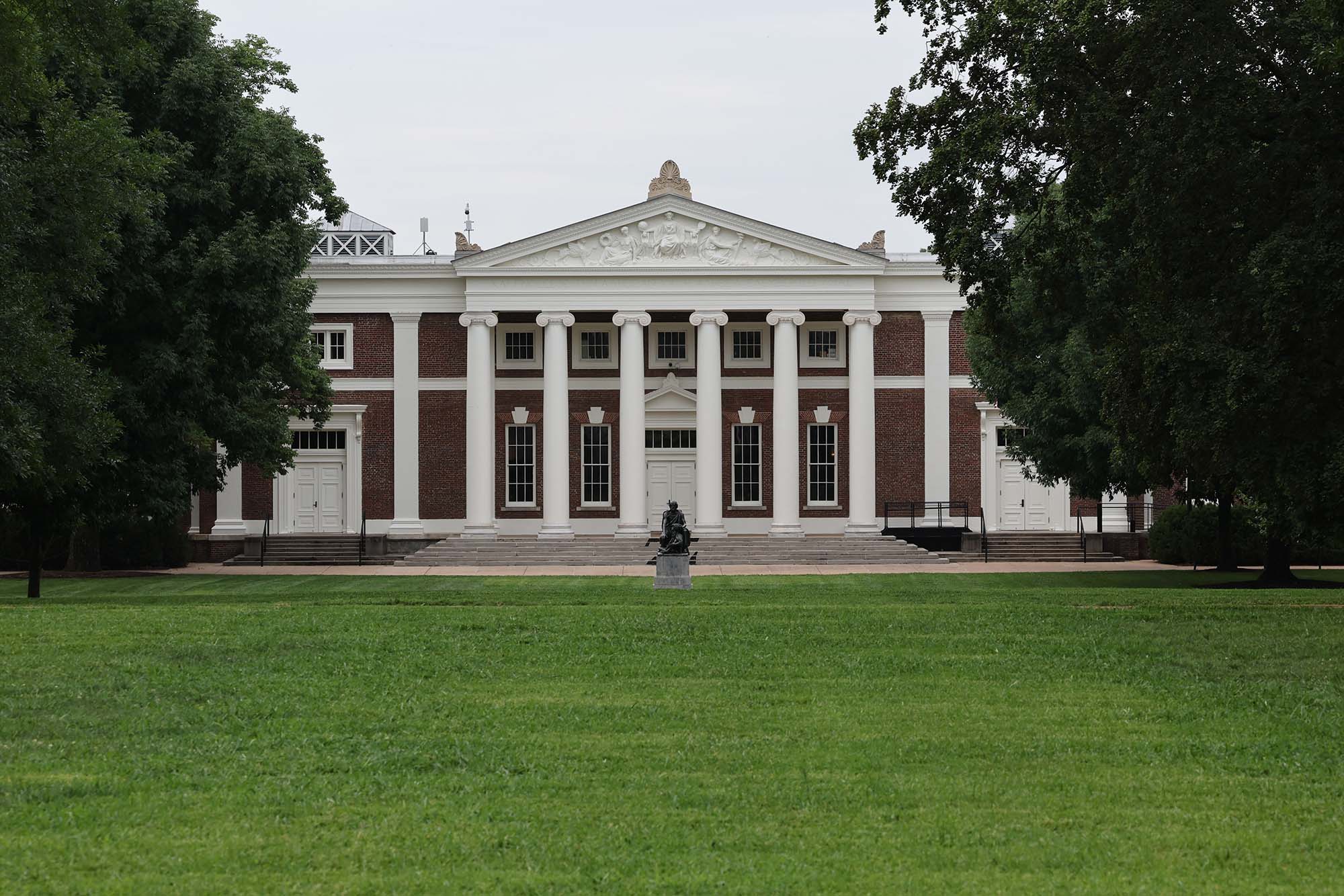Below is a summary of key changes to University policies regarding free expression and the use of shared space on Grounds for the coming academic year. More detailed explanations of these policies are available on the University’s Free Speech website:
- University policy defines the Academical Village to include the areas both north and south of the Rotunda. Due to the historic nature of the area, use of the Academical Village is subject to special restrictions, including a prohibition on structures (including tents and tables), with exceptions for certain reservation-only spaces.
- UVA’s time, place and manner policies permit University-affiliated persons to use outdoor property for public speaking, protests and demonstrations as long as those activities do not restrict equal access to shared University spaces or violate University policies or Virginia law. No outdoor events are permitted on Grounds between 2 a.m. and 6 a.m.
- The use of outdoor tents is prohibited unless they are permitted by the UVA Department of Safety and Security’s Office of Fire Safety prior to being erected. In addition, no tent may remain up for more than 18 hours or between midnight and 6 a.m., unless that tent is in use for official University or school events, or events sponsored by organizations associated with the University.
- Camping, with or without a tent, is prohibited in outdoor University facilities and on outdoor University property, and sleeping outdoors is prohibited between midnight and 6 a.m.
- Any individual wearing a mask or other face covering on University property must present an identification document or otherwise establish their identity if requested by an authorized University official. Virginia law prohibits anyone over 16 from wearing a face covering with the intent of concealing their identity.
“Before anything else, the University of Virginia is a community of open inquiry, teaching, research and patient care,” University Provost Ian Baucom said. “We make a commitment to students, faculty and staff who choose to come here that we will offer them the best possible environment to live, learn and work together. The rules we have in place governing expressive activities and the use of Grounds reflect that commitment, which requires ensuring robust free expression as well as ensuring that everyone can make use of spaces that are intended for all, and go about their daily lives as we sustain the normal operations of the University.”
In addition to the posted policies and the resources available on the University’s Free Speech website, officials from the Office of Student Affairs, the Office of the Provost, and the Department of Safety and Security regularly offer community members advice on how to plan protests, demonstrations or other expressive activities in a manner consistent with University policies.
In cases of willful noncompliance with University policies, UVA officials will follow a tiered process. If noncompliance persists following a warning, students may be issued an interim suspension and no-trespass warning, barring them from attending classes or being on Grounds until their case is adjudicated by the University Judiciary Committee. According to longstanding University policy, interim suspensions also result in students being disenrolled from their course schedule for the semester, pending a Judiciary Committee trial, unless the interim suspension is modified on appeal. If noncompliance continues, and as a last resort, the individuals or groups in question will be arrested. Faculty and staff who refuse to comply with University policies will also face disciplinary action following standard processes.
“Whenever we meet with community members who are planning a protest or expressive activity on Grounds, we support their right to do so and provide information about University policies and resources,” Vice President and Chief Student Affairs Officer Kenyon Bonner said. “Even in cases where we observe conduct that is out of compliance with University policies, our goal is to resolve the issue at the lowest level possible. We notify individuals that they are violating a University policy, explain the consequences of non-compliance, and ask them to comply.
“As we kick off another year together on Grounds,” Bonner continued, “we are doing our best to ensure that everyone understands the rules and the potential consequences for violating them so they can plan expressive activities accordingly. We are looking forward to continuing to work with our students and the entire community to offer the best possible learning, working, and living environment we can.”









